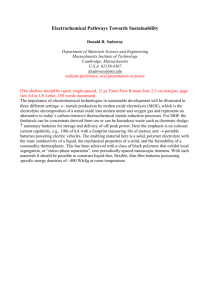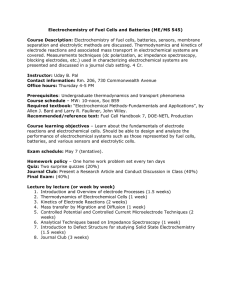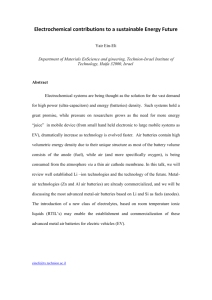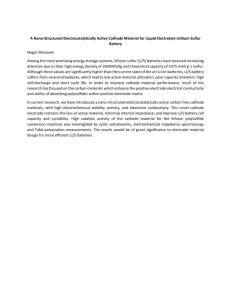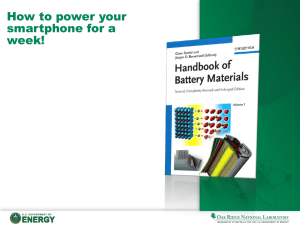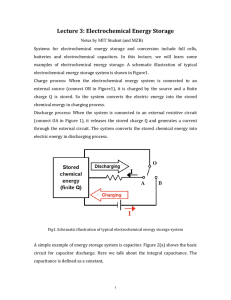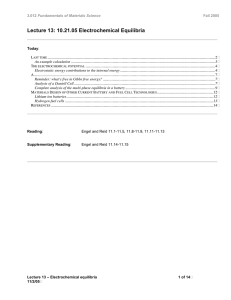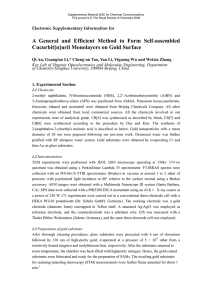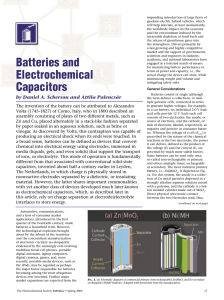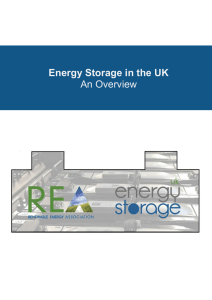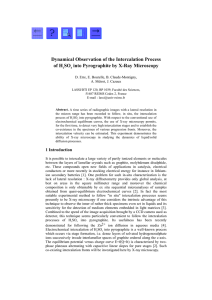Title Speaker Materials and Systems for Grid Scale Applications of Alkali Metal-Ion...
advertisement
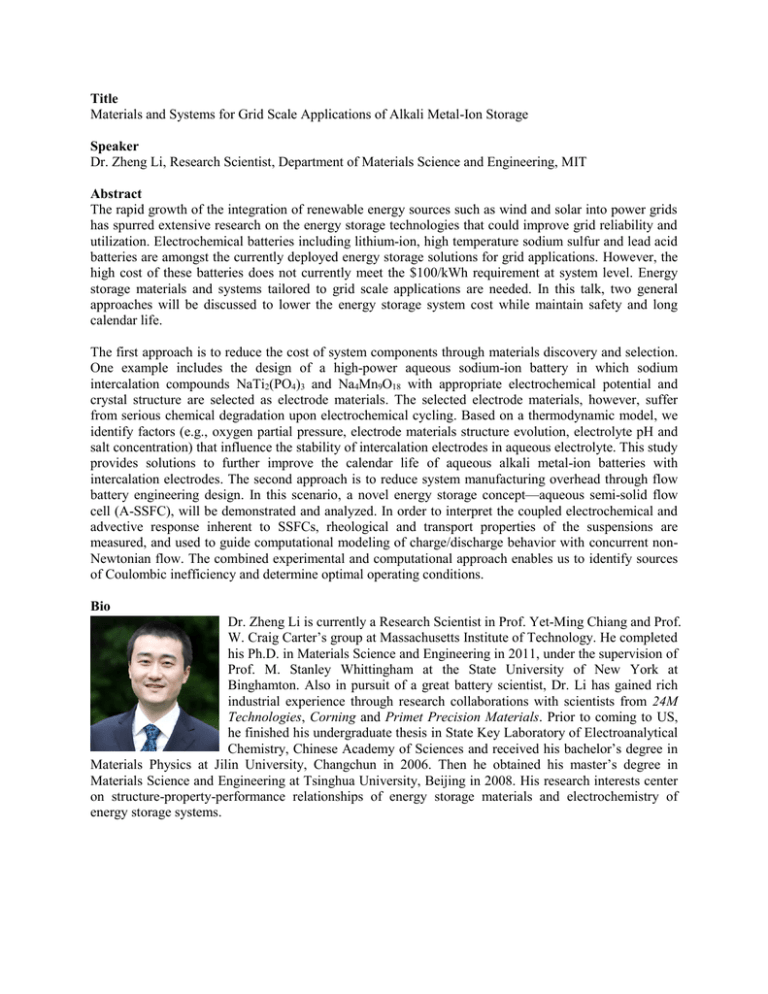
Title Materials and Systems for Grid Scale Applications of Alkali Metal-Ion Storage Speaker Dr. Zheng Li, Research Scientist, Department of Materials Science and Engineering, MIT Abstract The rapid growth of the integration of renewable energy sources such as wind and solar into power grids has spurred extensive research on the energy storage technologies that could improve grid reliability and utilization. Electrochemical batteries including lithium-ion, high temperature sodium sulfur and lead acid batteries are amongst the currently deployed energy storage solutions for grid applications. However, the high cost of these batteries does not currently meet the $100/kWh requirement at system level. Energy storage materials and systems tailored to grid scale applications are needed. In this talk, two general approaches will be discussed to lower the energy storage system cost while maintain safety and long calendar life. The first approach is to reduce the cost of system components through materials discovery and selection. One example includes the design of a high-power aqueous sodium-ion battery in which sodium intercalation compounds NaTi2(PO4)3 and Na4Mn9O18 with appropriate electrochemical potential and crystal structure are selected as electrode materials. The selected electrode materials, however, suffer from serious chemical degradation upon electrochemical cycling. Based on a thermodynamic model, we identify factors (e.g., oxygen partial pressure, electrode materials structure evolution, electrolyte pH and salt concentration) that influence the stability of intercalation electrodes in aqueous electrolyte. This study provides solutions to further improve the calendar life of aqueous alkali metal-ion batteries with intercalation electrodes. The second approach is to reduce system manufacturing overhead through flow battery engineering design. In this scenario, a novel energy storage concept—aqueous semi-solid flow cell (A-SSFC), will be demonstrated and analyzed. In order to interpret the coupled electrochemical and advective response inherent to SSFCs, rheological and transport properties of the suspensions are measured, and used to guide computational modeling of charge/discharge behavior with concurrent nonNewtonian flow. The combined experimental and computational approach enables us to identify sources of Coulombic inefficiency and determine optimal operating conditions. Bio Dr. Zheng Li is currently a Research Scientist in Prof. Yet-Ming Chiang and Prof. W. Craig Carter’s group at Massachusetts Institute of Technology. He completed his Ph.D. in Materials Science and Engineering in 2011, under the supervision of Prof. M. Stanley Whittingham at the State University of New York at Binghamton. Also in pursuit of a great battery scientist, Dr. Li has gained rich industrial experience through research collaborations with scientists from 24M Technologies, Corning and Primet Precision Materials. Prior to coming to US, he finished his undergraduate thesis in State Key Laboratory of Electroanalytical Chemistry, Chinese Academy of Sciences and received his bachelor’s degree in Materials Physics at Jilin University, Changchun in 2006. Then he obtained his master’s degree in Materials Science and Engineering at Tsinghua University, Beijing in 2008. His research interests center on structure-property-performance relationships of energy storage materials and electrochemistry of energy storage systems.
